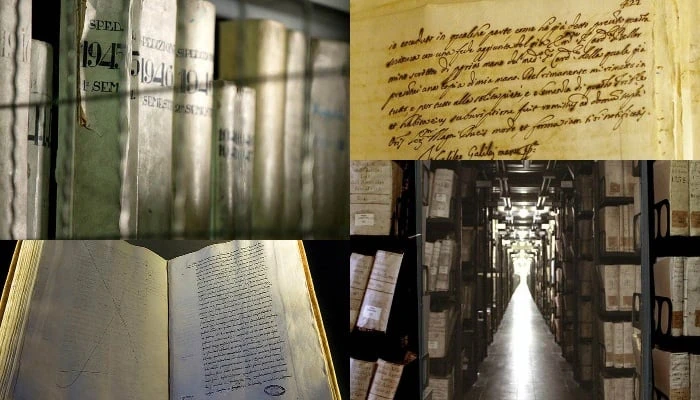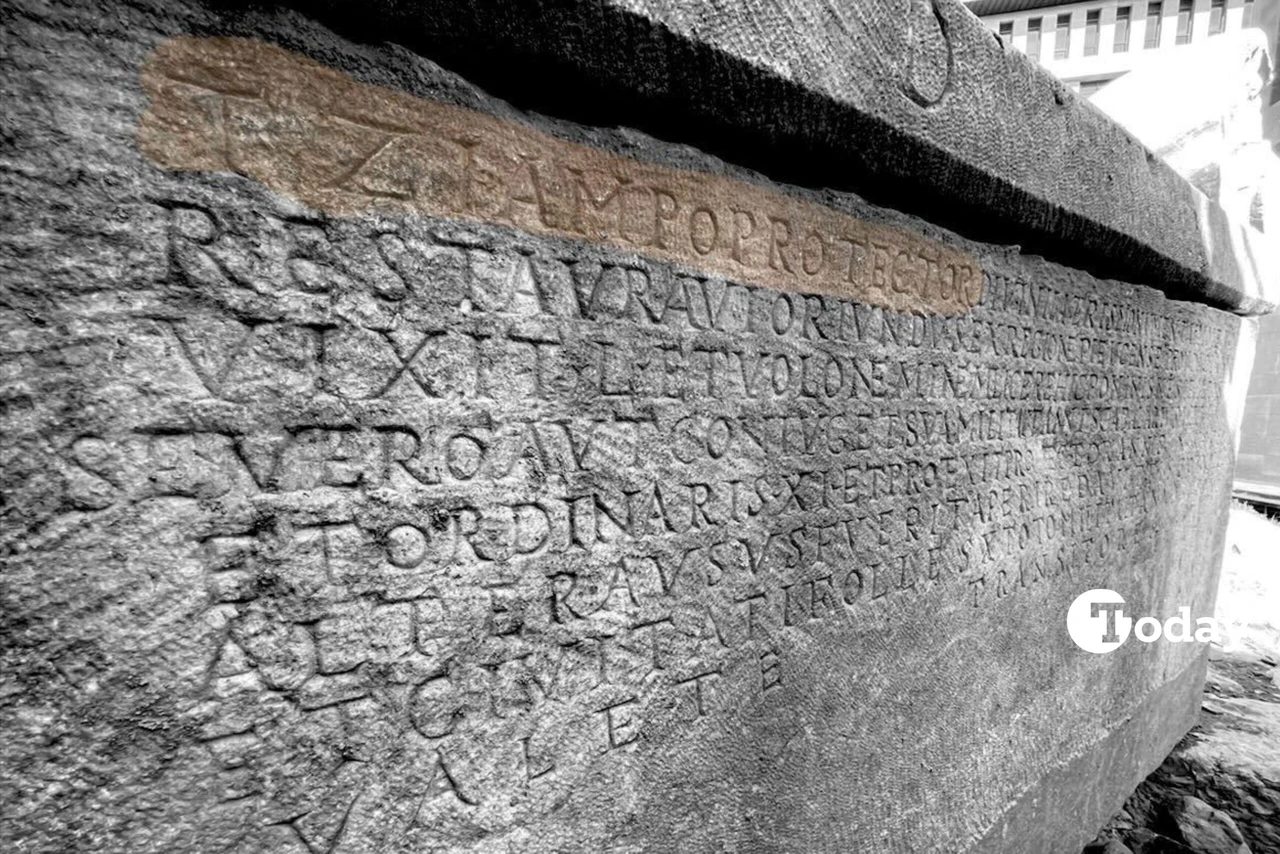Lost Ottoman manuscripts resurface in Vatican secret archives
 Rossi, Ettore, 1894-1955. A Turkish Map of the Nile River, circa 1685. In Imago Mundi: The Journal of the International Society for the History of Cartography. (Via DigiVatLib)
Rossi, Ettore, 1894-1955. A Turkish Map of the Nile River, circa 1685. In Imago Mundi: The Journal of the International Society for the History of Cartography. (Via DigiVatLib)
For 25 years, historian Rinaldo Marmara has been conducting extensive research within the Vatican’s secret archives. Now, he is bringing another significant historical revelation to light—one that holds great importance for Türkiye’s history.
Fatih Cekirge, a journalist from Türkiye’s daily Hurriyet, has uncovered handwritten documents stored within the Vatican’s secret vaults. Among them is a remarkable letter that sheds light on a turning point in European and Ottoman history.

The great eagle has fallen: A letter from Hungarian King to the Pope
One of the most extraordinary finds is a 500-year-old handwritten letter from Hungarian King Matthias Corvinus to Pope Sixtus VI. The letter, written with great excitement, announces a monumental event:
“The news of the death of the mighty emperor of the Turks has just reached me. The relentless enemy of Christendom, the Turkish Emperor, passed away on the fifth or sixth day of May. His eldest son has been appointed as his successor, but his younger son, who resides on the other side of the sea in Anatolia, is in great haste to seize power.”
The “Great Eagle” mentioned in the letter was none other than Sultan Mehmed II, known as Mehmed the Conqueror. His eldest son, Bayezid, was declared the new ruler, while his younger son, Cem Sultan, would soon become a figure of political intrigue across Europe.
Cem Sultan, Europe
The Vatican archives also reveal handwritten documents detailing the fate of Cem Sultan, who became a captive of European powers. Trapped between the Knights of Rhodes, the King of France, and the Pope, Cem was a bargaining chip in a high-stakes political game. One particularly striking document shows how the Ottoman Empire was required to pay 40,000 gold coins annually to ensure Cem’s well-being.
A letter from King Charles VIII of France to the Pope further underscores the political maneuvering surrounding Cem Sultan’s captivity.
Hurrem Sultan’s origins: A secret unveiled?
Another astonishing discovery is a handwritten genealogy chart concerning Hurrem Sultan, the famous wife of Sultan Suleiman I.
The document raises an age-old question: Was Hurrem Sultan the daughter of a poor Ukrainian priest, or did she belong to an Italian noble family?

Evliya Celebi’s 250-year-old Nile map
Among the treasures found in the Vatican’s archives is a world heritage artifact—Evliya Celebi’s 250-year-old Nile map.
Measuring an impressive 5 meters and 42 centimeters in length, this map provides intricate details about the Nile River, surrounding settlements, cultures, and people.
Barbaros Hayreddin Pasha’s handwritten diaries
The Vatican archives also contain the handwritten war diaries of the legendary Ottoman admiral Barbaros Hayreddin Pasha. Known as Gazabat-i Hayrettin Pasha, these documents record naval battles, fierce sea storms, and epic military campaigns carried out at the behest of Sultan Suleiman the Magnificent.
A 500-year-old archive stretching 87 kilometers
The Vatican’s secret archives extend for an astonishing 87 kilometers, housing tens of thousands of handwritten books and documents. Rinaldo Marmara, one of the very few researchers granted access to these hidden treasures, has spent years meticulously examining these historical gems.
The upcoming documentary on his research promises to unveil new questions, spark fresh debates, and offer unprecedented insights into Türkiye’s rich history.
Expert insights on Vatican’s hidden history
The documentary broadcast on the “Tabii” platform of Türkiye’s official broadcaster, TRT, features the perspectives of renowned historians, including Professor Ilber Ortayli, Professor Nuran Tezcan, Professor Gulgun Uyar, Professor Zeynep Tarim, and researcher Samet Altintas. Their insights shed light on the vast collection of historical documents preserved within the Vatican’s secret archives.
By revealing these never-before-seen manuscripts, the documentary not only contributes to the study of Ottoman history but also opens the door to understanding how the empire was perceived in the Christian world of Europe.



